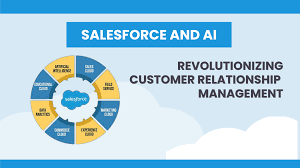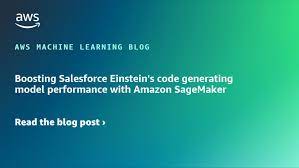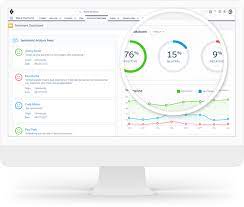Being AI-Driven
Imagine a company where every decision, strategy, customer interaction, and routine task is enhanced by AI. From predictive analytics uncovering market insights to intelligent automation streamlining operations, this AI-driven enterprise represents what a successful business could look like. Does this company exist? Not yet, but the building blocks for creating it are already here. To envision a day in the life of such an AI enterprise, let’s fast forward to the year 2028 and visit Tectonic 5.0, a fictional 37-year-old mid-sized company in Oklahoma that provides home maintenance services. After years of steady sales and profit growth, the 2,300-employee company has hit a rough patch. Tectonic 5.0’s revenue grew just 3% last year, and its 8% operating margin is well below the industry benchmark. To jumpstart growth, Tectonic 5.0 has expanded its product portfolio and decided to break into the more lucrative commercial real estate market. But Tectonic 5.0 needs to act fast. The firm must quickly bring its new offerings to market while boosting profitability by eliminating inefficiencies and fostering collaboration across teams. To achieve these goals, Tectonic 5.0 is relying on artificial intelligence (AI). Here’s how each department at Tectonic 5.0 is using AI to reach these objectives. Spot Inefficiencies with AI With a renewed focus on cost-cutting, Tectonic 5.0 needed to identify and eliminate inefficiencies throughout the company. To assist in this effort, the company developed a tool called Jenny, an AI agent that’s automatically invited to all meetings. Always listening and analyzing, Jenny spots problems and inefficiencies that might otherwise go unnoticed. For example, Jenny compares internal data against industry benchmarks and historical data, identifying opportunities for optimization based on patterns in spending and resource allocation. Suggestions for cost-cutting can be offered in real time during meetings or shared later in a synthesized summary. AI can also analyze how meeting time is spent, revealing if too much time is wasted on non-essential issues and suggesting ways to have more constructive meetings. It does this by comparing meeting summaries against the company’s broader objectives. Tectonic 5.0’s leaders hope that by highlighting inefficiencies and communication gaps with Jenny’s help, employees will be more inclined to take action. In fact, it has already shown considerable promise, with employees being five times more likely to consider cost-cutting measures suggested by Penny. Market More Effectively with AI With cost management underway, Tectonic 5.0’s next step in its transformation is finding new revenue sources. The company has adopted a two-pronged approach: introducing a new lineup of products and services for homeowners, including smart home technology, sustainable living solutions like solar panels, and predictive maintenance on big-ticket systems like internet-connected HVACs; and expanding into commercial real estate maintenance. Smart home technology is exactly what homeowners are looking for, but Tectonic 5.0 needs to market it to the right customers, at the right time, and in the right way. A marketing platform with built-in AI capabilities is essential for spreading the word quickly and effectively about its new products. To start, the company segments its audience using generative AI, allowing marketers to ask the system, in natural language, to identify tech-savvy homeowners between the ages of 30 and 60 who have spent a certain amount on home maintenance in the last 18 months. This enables more precise audience targeting and helps marketing teams bring products to market faster. Previously, segmentation using legacy systems could take weeks, with marketing teams relying on tech teams for an audience breakdown. Now, Tectonic 5.0 is ready to reach out to its targeted customers. Using predictive AI, it can optimize personalized marketing campaigns. For example, it can determine which customers prefer to be contacted by text, email, or phone, the best time of day to reach out, and how often. The system also identifies which messaging—focused on cost savings, environmental impact, or preventative maintenance—will resonate most with each customer. This intelligence helps Tectonic 5.0 reach the optimal customer quickly in a way that speaks to their specific needs and concerns. AI also enables marketers to monitor campaign performance for red flags like decreasing open rates or click-through rates and take appropriate action. Sell More, and Faster, with AI With interested buyers lined up, it’s now up to the sales team to close deals. Generative AI for sales, integrated into CRM, can speed up and personalize the sales process for Tectonic 5.0 in several ways. First, it can generate email copy tailored to products and services that customers are interested in. Tectonic 5.0’s sales reps can prompt AI to draft solar panel prospecting emails. To maximize effectiveness, the system pulls customer info from the CRM, uncovering which emails have performed well in the past. Second, AI speeds up data analysis. Sales reps spend a significant amount of time generating, pulling, and analyzing data. Generative AI can act like a digital assistant, uncovering patterns and relationships in CRM data almost instantaneously, guiding Tectonic 5.0’s reps toward high-value deals most likely to close. Machine learning increases the accuracy of lead scoring, predicting which customers are most likely to buy based on historical data and predictive analytics. Provide Better Customer Service with AI Tectonic 5.0’s new initiatives are progressing well. Costs are starting to decrease, and sales of its new products are growing faster than expected. However, customer service calls are rising as well. Tectonic 5.0 is committed to maintaining excellent customer service, but smart home technology presents unique challenges. It’s more complex than analog systems, and customers often need help with setup and use, raising the stakes for Tectonic 5.0’s customer service team. The company knows that customers have many choices in home maintenance providers, and one bad experience could drive them to a competitor. Tectonic 5.0’s embedded AI-powered chatbots help deliver a consistent and delightful autonomous customer service experience across channels and touchpoints. Beyond answering common questions, these chatbots can greet customers, serve up knowledge articles, and even dispatch a field technician if needed. In the field, technicians can quickly diagnose and fix problems thanks to LLMs like xGen-Small, which










